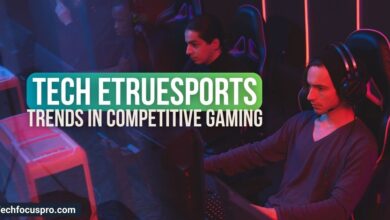Strategic Hiring in the Gaming Industry: How Top Video Game Companies Find and Retain Game Dev Talent

The competition for elite talent in the gaming industry is just as intense as the games. The biggest video game creators are hard to come by, especially in the United States, and video game firms have to work twice as hard to keep them in a highly competitive and high turnover rate industry.
Understanding the strategic hiring procedures that support the acquisition and retention of elite game development talent is essential for all sizes of companies, from independent studios to large conglomerates.
This blog delves into the tactics used by top video game dev for hire and retain talent for game development, including crucial takeaways for hiring game developers and human resource managers.
Identifying Talent: Beyond the Resume
Networking and Community Engagement
Recruiting firms and job advertising are not the only ways top video game companies hire. They actively participate in and support hackathons, industry conferences, and game jams, where prospective employees showcase their skills in real-time in addition to their resumes.
Employers can evaluate a candidate’s practical skills, inventiveness, and teamwork—all important in the gaming industry—by using this hands-on method.
Leveraging Social Media and Online Platforms
For recruiters trying to contact game developers, sites like LinkedIn, Twitter, and niche online forums (like Stack Overflow and GitHub) are helpful resources. Businesses frequently use these platforms to highlight their projects and culture, which draws in developers who share their enthusiasm for games and ideals.
The Interview Process: Finding the Right Fit

Skill Assessment
Technical interviews and practical assessments are commonplace, as they ought to be, but elite organizations frequently go above and beyond. They could consist of project-based evaluations that mimic actual issues developers might encounter at work and provide insight into a candidate’s problem-solving approach and creativity capacity.
Cultural Fit and Vision Alignment
A hiring strategy must consider cultural fit to be successful. Businesses want developers whose ideas complement their corporate culture and long-term objectives.
Since developers are more likely to stick where they feel their personal and professional goals are supported, this alignment is essential for retention.
Attractive Compensation Packages
Competitive Salaries
Top video game companies often offer competitive salaries that match or exceed industry standards to attract the best talent. This is an essential yet crucial element in both attracting and retaining talent.
Comprehensive Benefits
In addition to paying salaries, firms provide generous benefit packages that include profit-sharing plans, health insurance, retirement plans, and bonuses. Top talent is often drawn to these organizations by benefits like flexible work schedules, game and entertainment allowances, and remote work options.
Professional Development and Career Growth

Continuous Learning
Putting money into professional development and ongoing education is a big lure. Leading businesses frequently offer tools for continued learning, including seminars, courses, and workshops, to assist creators in staying up to date with the latest advancements in technology and game design.
Clear Career Pathways
Another crucial tactic is establishing clear career tracks and promotion opportunities inside the organization. If developers believe they can advance and take on new organizational tasks, they are likelier to stay.
Fostering a Positive Work Environment
Collaborative Culture
Video game production is a very team-oriented process. Top developers are more likely to be drawn to and stay with companies that promote a culture of cooperation, honest communication, and respect for one another.
Work-Life Balance
Leading firms know the high expectations of game (Like LOTR) production and work hard to create a balance that keeps employees from burning out. Some initiatives could include generous leave policies, flexible work hours, and encouragement of individual ideas and innovation.
Alumni Engagement and Boomerang Hires
Getting to know previous workers and bringing back boomerang workers—those who leave a company and then return—can also be successful tactics.
Alumni networks support connections with former workers, who may return to the organization with fresh perspectives and expertise.
FAQs
What essential skills are required for a game developer in the gaming industry?
Game producers need both technical and artistic abilities. Technical talents include working knowledge of gaming engines like Unity and Unreal Engine, as well as programming languages like Python, C++, and C#. Creative skills include storytelling:
- Storytelling.
- I have a solid understanding of graphics and audio design.
- Havingame design principles. Teamwork and the ability t
Solving problems is also essential.
What are the expected benefits offered by top video game companies?
Prominent video game firms usually provide stock options, retirement plans, health insurance, and competitive compensation. A favourable work atmosphere with contemporary workplaces and relaxation areas, professional development programs, flexible work schedules, and remote working options are possible extra benefits.
How do gaming companies hire?
Gaming companies use a multifaceted, systematic hiring procedure. Before using various recruitment channels, such as job boards, industry events, social media, and specialist forums, to identify applicants, they must explicitly outline the criteria and skills particular to each function. They also participate in hackathons and game jams to find skilled developers. The approach usually consists of technical examinations, portfolio evaluations, and interviews to determine both technical proficiency and cultural fit.
How do you hire strategically?
Developing thorough job descriptions, focusing recruitment efforts, and implementing a rigorous screening procedure are all components of strategic hiring that align with the organization’s long-term objectives. Assessing abilities and cultural fit is part of this. A comprehensive hiring approach must include investments in employer branding, an appealing employee value proposition, competitive benefits, and possibilities for professional advancement.
How do you recruit a gaming community?
Developing relationships is more critical to interacting with the gaming community than posting job openings. Companies maintain a solid social media presence and sponsor or participate in conferences, tournaments, and online forums. Organizing game jams and hackathons and encouraging staff members to serve as brand ambassadors can draw in enthusiastic, like-minded people.
What is the gamification process in hiring?
Gamification involves integrating elements of games into recruitment. Coding exercises, interactive apps, and job simulations are a few examples. Competition-based components, in which contestants receive badges or points, can also be used in gamification. This increases the process’s engagement and offers useful information on candidates’ abilities and inventiveness.
Conclusion
Strategic hiring in the gaming industry requires a nuanced approach beyond mere skill assessment. Top video game companies excel by building a strong employer brand, engaging actively with the gaming community, offering competitive compensation, and fostering an inclusive and supportive work environment. These strategies attract the best game dev for hire and ensure that they remain motivated and committed to the company long-term. As the industry continues to evolve, so must the strategies used to find and retain the best game development talent.






